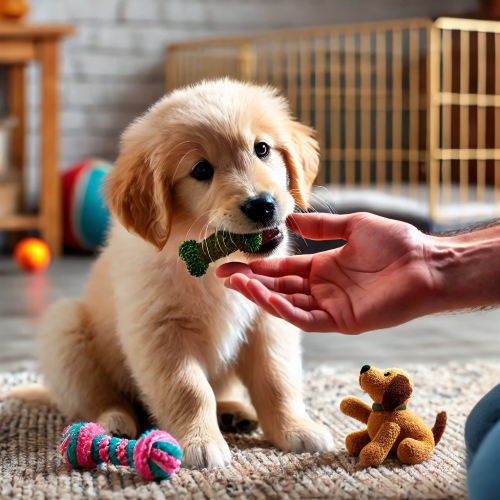Puppy biting and nipping can catch new owners off guard, but it’s a normal part of their development. This guide shares expert strategies to manage and reduce this behavior, ensuring a peaceful bond with your pup. With the right techniques, you can stop puppy biting and create a happier home environment.
Why Puppies Bite
Biting is how puppies explore the world and play, much like human babies use their hands. It’s also a way to relieve teething pain or assert themselves during playtime. While it’s natural, unchecked biting can become a problem as your puppy grows, so addressing it early is essential for long-term behavior.
Step 1: Redirect the Behavior
When your puppy bites, offer a chew toy instead. Keep a variety handy—like rubber bones or rope toys—and praise them when they bite the toy. This teaches them what’s acceptable to chew on. Consistency in redirection helps stop puppy nipping over time and builds good habits.
Step 2: Use a Time-Out
If redirection doesn’t work, stop play immediately and walk away for 30 seconds. Puppies crave attention, so this shows that biting ends the fun. Resume play after the break, repeating as needed. Avoid yelling—it might excite them more and confuse the training process.
Step 3: Teach Bite Inhibition
Puppies learn bite strength from littermates. Mimic this by yelping “ouch” when they bite too hard, then ignore them briefly. This helps them understand gentle play is better. Over weeks, they’ll soften their bite, a crucial skill for adult dogs to interact safely with others.
Managing Teething
Teething puppies bite more due to discomfort, typically between 3-6 months. Freeze a wet washcloth or offer cold chew toys to soothe their gums. Keep your hands and furniture out of reach during this phase to prevent bad habits from forming, and be patient as they adjust.
Tips for Success
Exercise your puppy daily—tired pups bite less. Avoid rough play like tug-of-war, which can encourage nipping. Socialize them with other dogs to learn boundaries naturally. If biting persists past 6 months, consult a trainer for personalized puppy biting tips to address specific issues.
Stopping puppy biting takes patience, but it’s worth it for a well-mannered dog. Combine redirection, timeouts, and bite inhibition training for the best results. Check our other guides for more puppy behavior solutions to keep your training on track!
